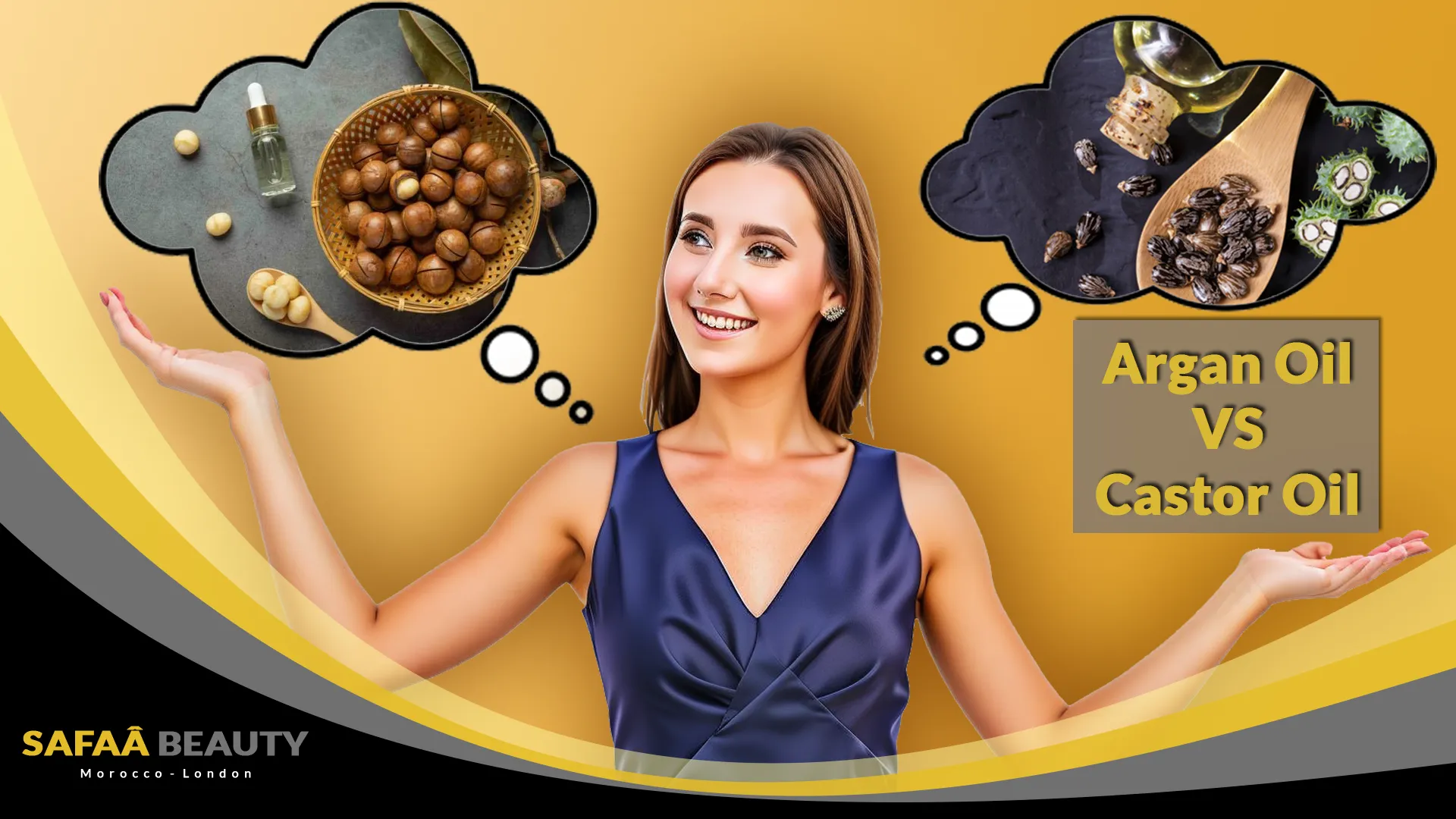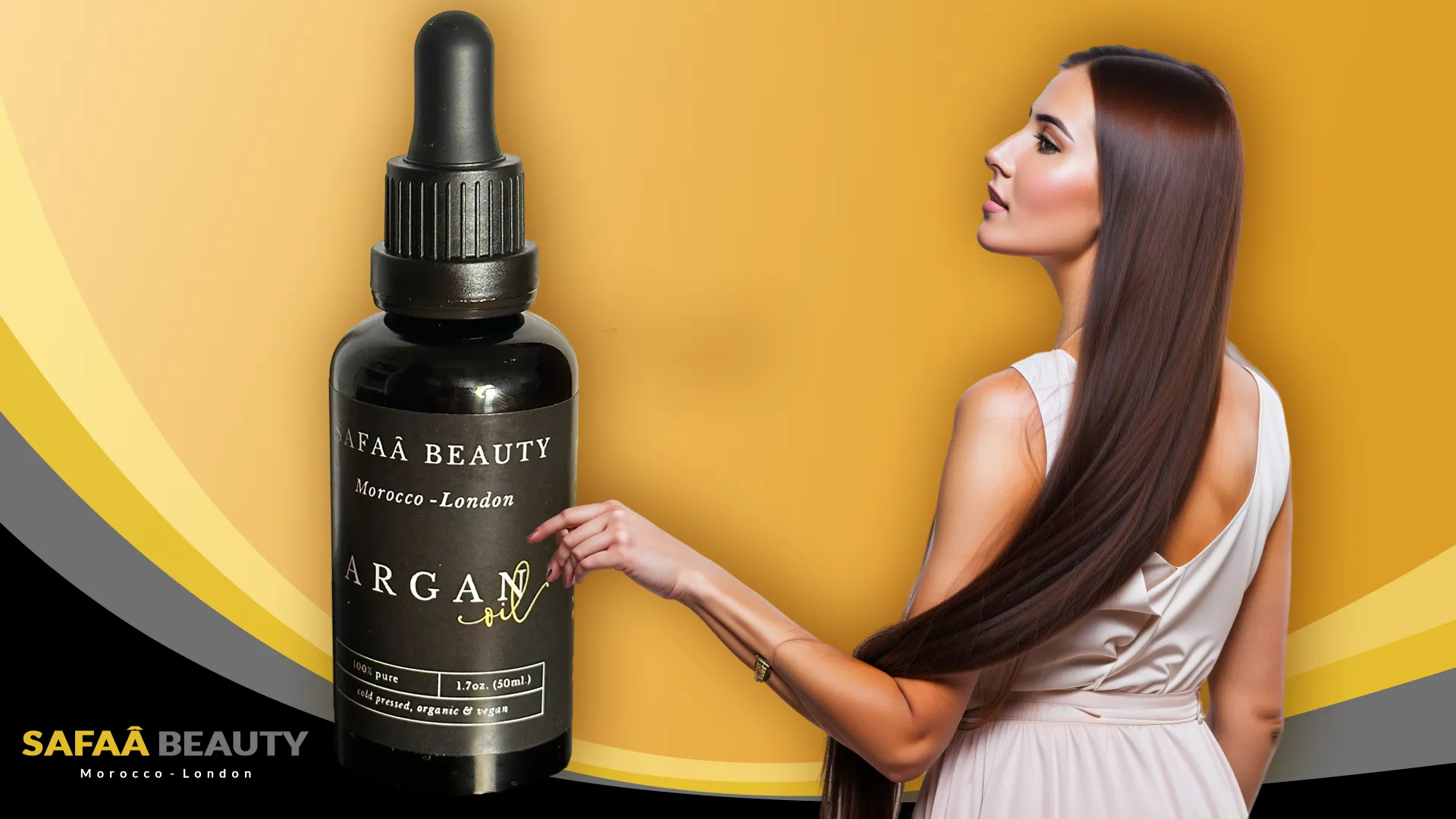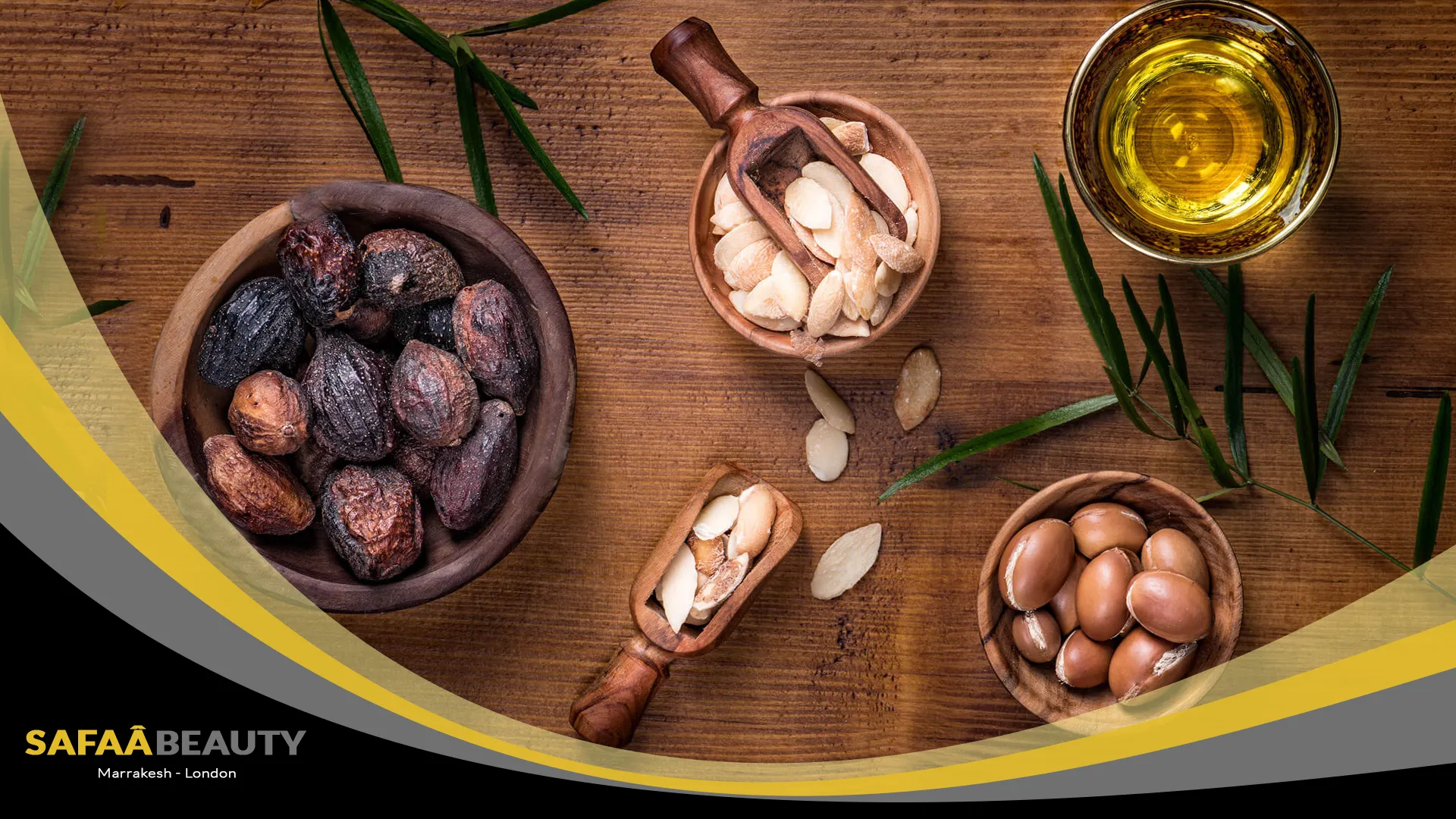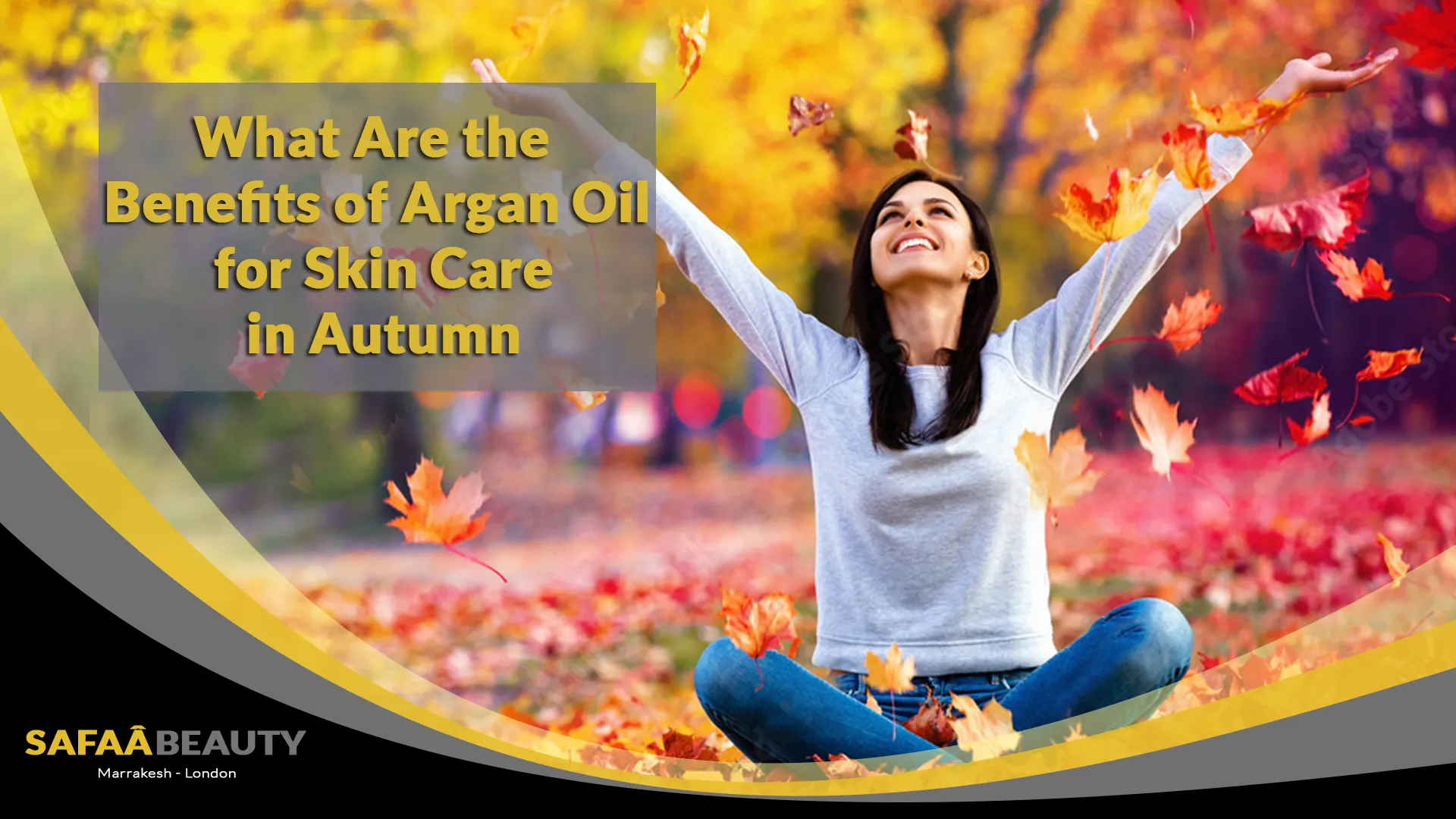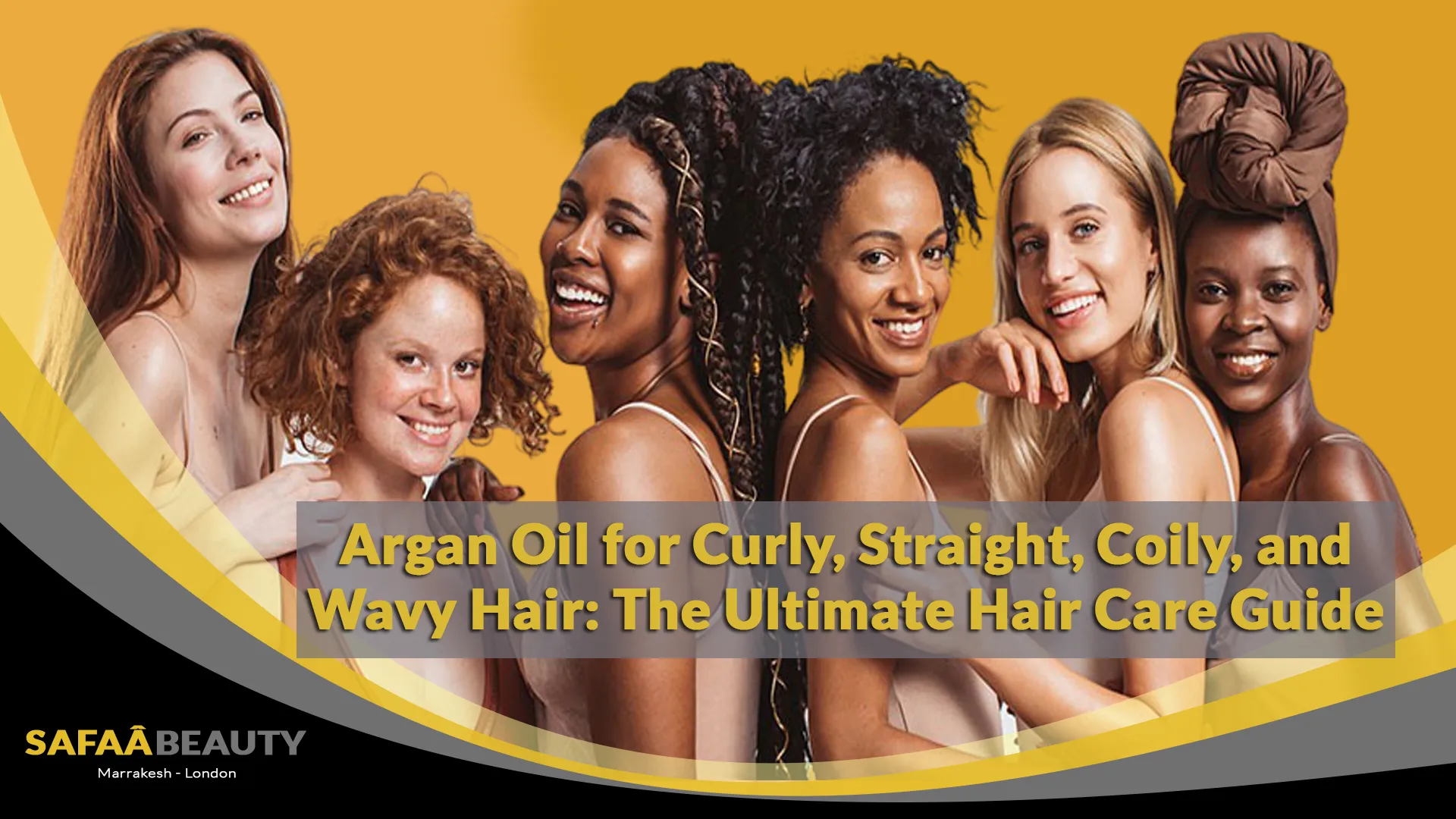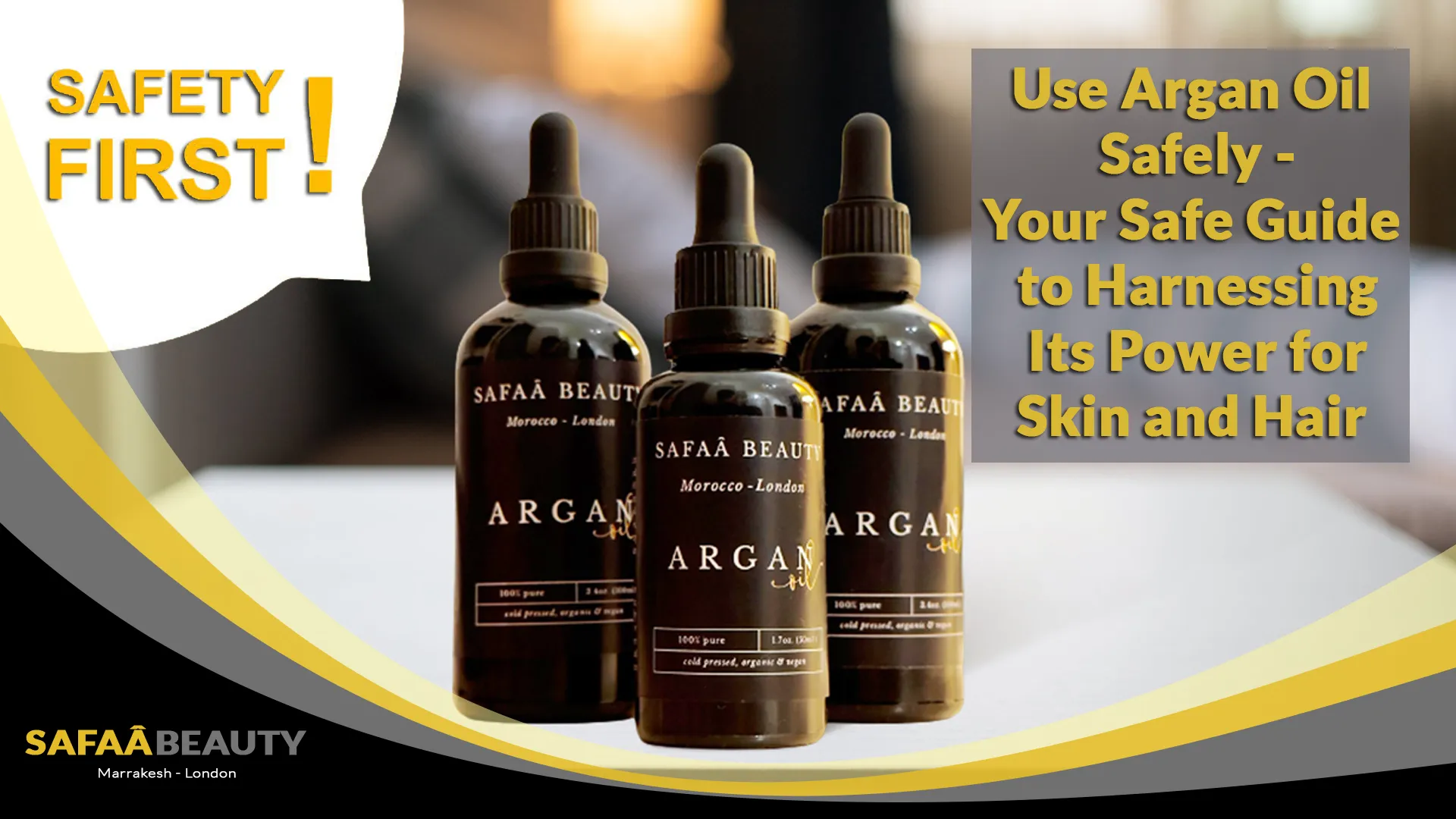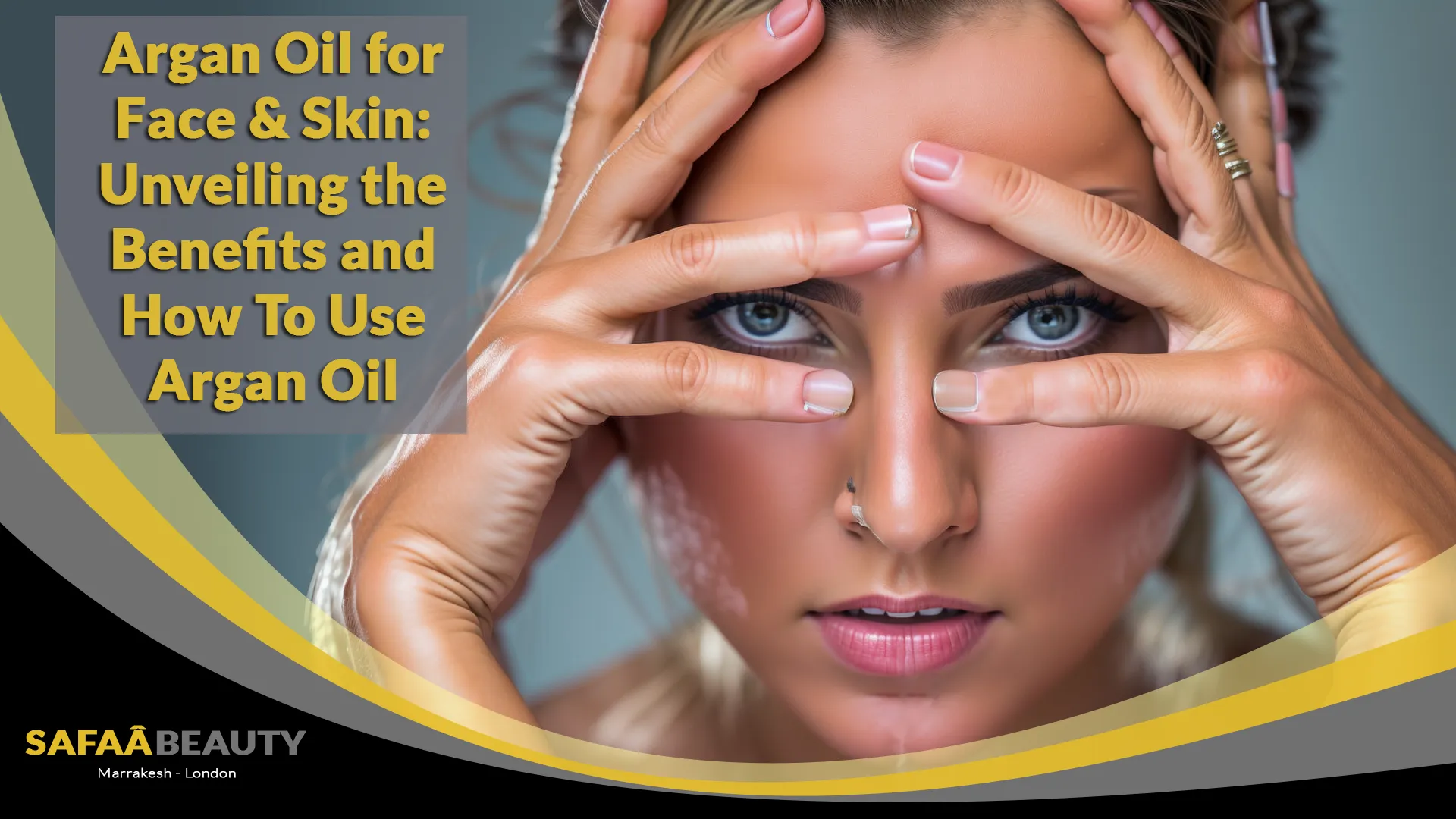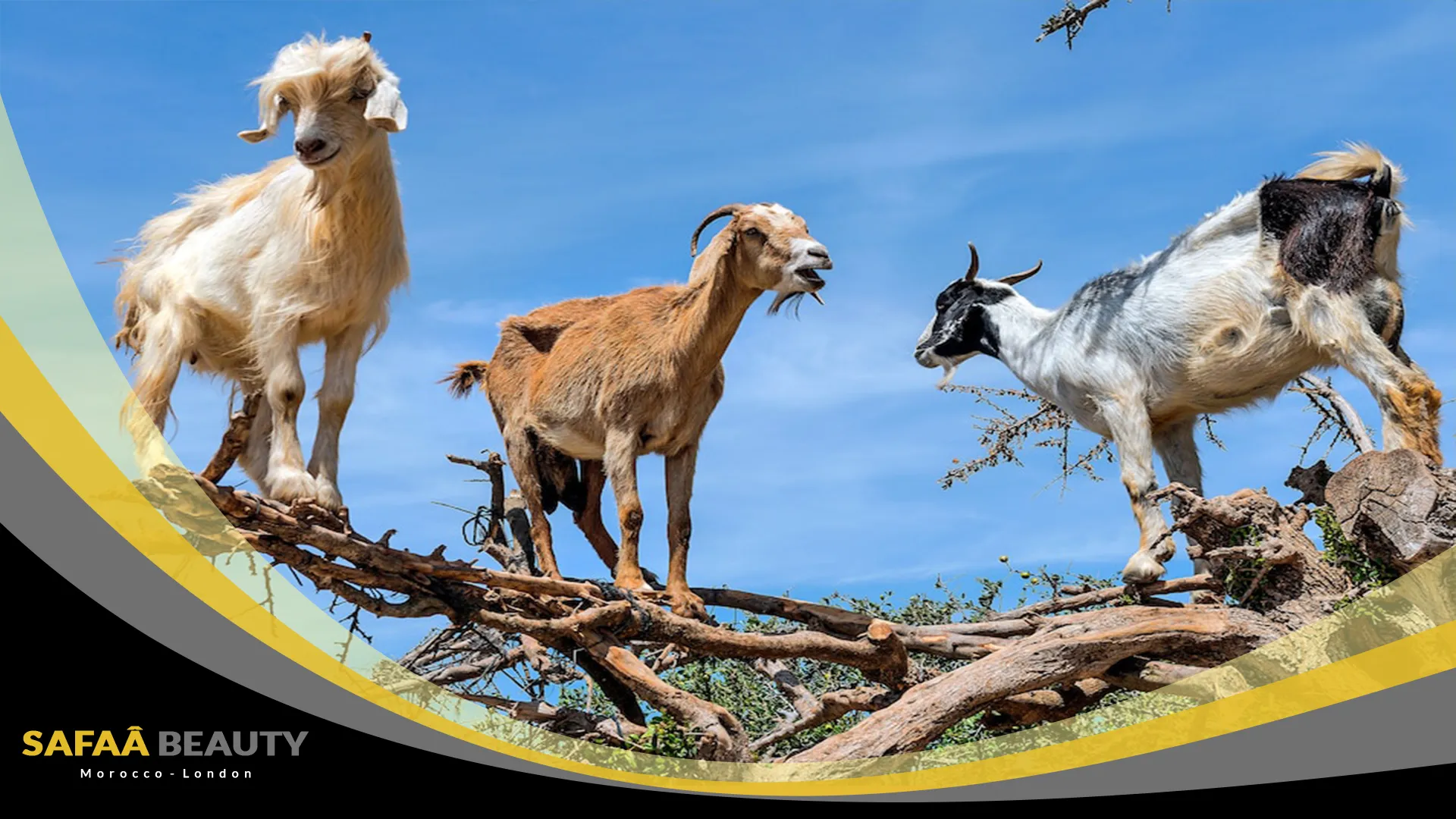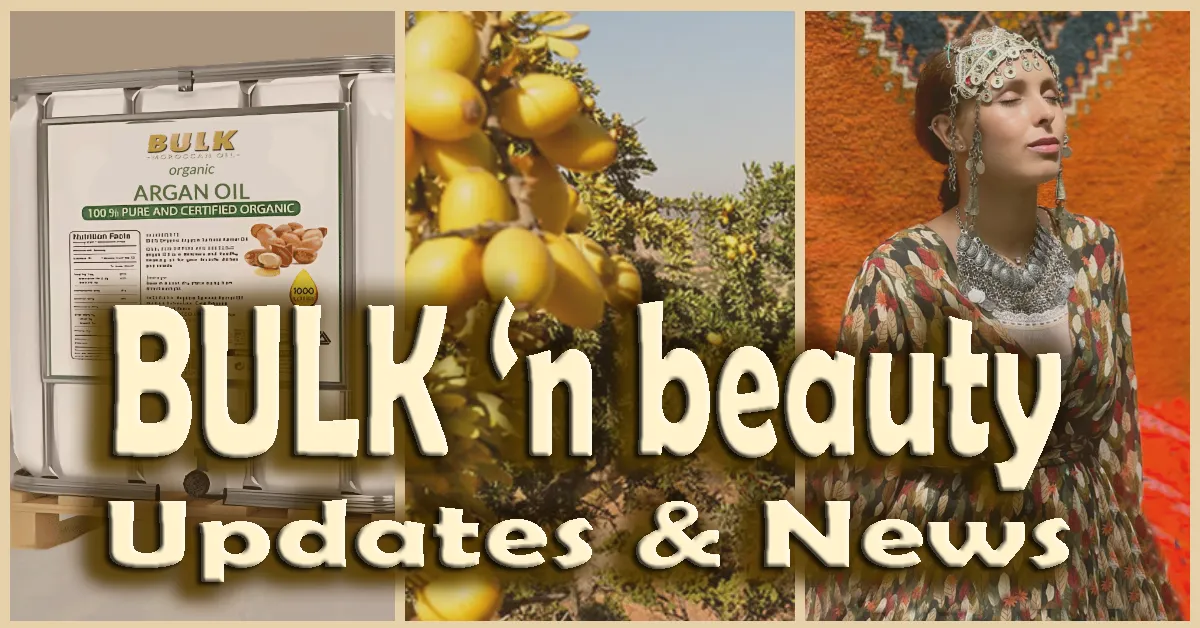The Moroccan Women's Cooperative: Unveiling the Power of Argan Oil
In the heartland of Morocco flows a liquid gold, a natural treasure that enriches not only the beauty & health industries but also the lives of Moroccan women who have formed cooperatives to produce and market the revered substance – Argan Oil. This article reveals the journey behind Argan oil production, from the arid lands of Southwestern Morocco (Essaouira) to the global markets, and the transformative role of women-led cooperatives in this journey. If you're intrigued by the intersection of sustainable development, women entrepreneurship, and the booming markets for Moroccan Argan Oil, this insightful post is a must-read.

Content:
- Unveiling the Argan Oil: What is it and why is it important?
- The Argan Tree: A Lifeline in Arid Lands
- The Cooperative Movement: The Foundation of Argan Oil Production
- Women at the Helm: The Berber Women of Southwestern Morocco
- Argan Oil: Cosmetic, Edible, and So Much More
- The Booming Markets for Moroccan Argan Oil: Global Demand Meets Traditional Supply
- The Benefits of Argan Oil: Why is it Hailed as a 'Superfood'?
- The Contribution of Argan Oil Cooperatives to Women's Empowerment
- Sustainability and Argan Oil Production: Is it Threatening the Endemic Argan Forest?
- The Future of Moroccan Argan Oil: Challenges and Opportunities
Unveiling the Argan Oil: What is it and why is it important?
Argan oil, extracted from the kernels of the Argan tree (Argania Spinosa), indigenous to Morocco, is considered one of the world's most valuable oils owing to its culinary, cosmetic, and medicinal benefits. Known traditionally among the Berber people as 'liquid gold', Argan oil is not just a source of employment and income for rural households but also a symbol of Morocco's rich cultural and natural heritage.
The Argan Tree: A Lifeline in Arid Lands
In the arid regions of Southwestern Morocco, the Argan tree thrives, serving as a vital fixture in the local biosphere. These trees, resilient to harsh climatic conditions, prevent soil erosion and protect water resources, earning recognition as a Biosphere Reserve by UNESCO in 1998. However, increasing demands for Argan oil and other uses, such as firewood and building materials, have made the Argan forests vulnerable to deforestation.
The Cooperative Movement: The Foundation of Argan Oil Production
The emergence of cooperatives has revolutionized the production of Argan oil, with a particular emphasis on the remarkable women working within these organizations. Comprising predominantly of women, these cooperatives have streamlined the entire process, encompassing the harvesting of Argan fruit, the extraction of Argan Oil, and the marketing of the final products. One noteworthy example is the Taitmatine cooperative, founded in 2002. This cooperative has not only elevated the quality of Argan oil but has also uplifted the socioeconomic standing of the rural women involved.
A significant accomplishment of the Taitmatine cooperative is its unwavering commitment to enhancing the quality of Argan oil. Rigorous quality control measures have been integrated into every facet of the production process, ensuring that the oil consistently meets international standards. Consequently, this has bolstered the global reputation of Argan oil and unlocked new market opportunities for the cooperative.
In addition to their dedication to quality improvement, the Taitmatine cooperative has played a pivotal role in empowering and advancing rural women in the Argan oil industry. Historically, women in rural regions of Morocco have faced limited prospects for economic growth. By involving women in the cooperative's activities, Taitmatine has provided them with a platform to generate income and improve their socioeconomic status.
Participation in the cooperative has equipped these women with newfound skills and knowledge relating to Argan oil production, marketing, and entrepreneurship. This has not only augmented their earning potential but has also fortified their self-confidence and decision-making abilities. Through their active engagement in the cooperative, women have been able to wield influence within their communities and challenge established gender norms.
The Taitmatine cooperative has been diligent in ensuring an equitable distribution of income among its members. By establishing transparent and inclusive decision-making processes, the cooperative has guaranteed that the benefits of Argan oil production are distributed fairly. Consequently, this has led to more balanced socioeconomic development within the rural communities in which they operate.
The Taitmatine cooperative serves as an exceptional example of how cooperative ventures can enhance product quality while simultaneously effecting positive social change. By concentrating on improving Argan oil and empowering rural women, this cooperative has left an indelible mark on both local and global scales.

The Argan Oil Production: Traditions Meet Modern Demand
In the arid mountains of southern Morocco, argan oil is more than a mere product; it's a symbol of heritage deeply rooted in the Amazigh-speaking Berber communities. Women here traditionally harvested argan oil for culinary use. Today, it is globally sought-after by the beauty industry as an anti-aging solution and a restorative for hair.
Argan Oil: Cosmetic, Edible, and So Much More
Celebrated for its rich fatty acid content, Argan oil, both in its edible and cosmetic forms, is a powerhouse of nutrients. While edible oil is favored for its high oleic acid content, cosmetic Argan oil is famed for its rejuvenating effects on skin and hair, making it a sought-after ingredient in the global beauty industry.
The Booming Markets for Moroccan Argan Oil: Global Demand Meets Traditional Supply
With growing global awareness about the benefits of Argan oil, the demand has surged, leading to booming markets for Moroccan Argan oil. Women cooperatives like Taitmatine have played a crucial role in bridging the gap between traditional supply chains and the burgeoning international markets.
The escalating demand for argan oil by international cosmetics companies has influenced local production groups to invest in attractive packaging, thereby driving up the local market price to around $30-50 per liter. However, this exalted 'liquid gold' can sell in high-end smaller bottles in the international market for up to $250 per liter.
The Taitmatine cooperative, located in the Tiout oasis near Taroudant (600km south of Rabat), exemplifies the transformative power of the argan boom. Employing 100 women, it offers a salary, free childcare, health insurance, and literacy courses. Founded in 2002, the cooperative, whose name in Amazigh means "sisters," integrates modern machinery to expedite the processing of the fruit.
However, the manual tradition persists as the women still remove the hard shell of the kernels by hand, pounding it with a stone to access the inner kernel. This kernel is then pressed by a machine to extract the oil. "It takes up to three days of grinding for every woman to get one liter of Argan oil," says Mina Ait Taleb, head of the Taitmatin cooperative.
The cooperative is not merely a workplace; it's a community where women also find camaraderie. "We work here but we also have fun and sing together," says Zahra Haqqi, one among the dozens of women who work there, stressing how the job earned her a regular income.

The Benefits of Argan Oil: Why is it Hailed as a 'Superfood'?
Rich in essential fatty acids, antioxidants, and vitamin E, Argan oil offers myriad health and beauty benefits. Regular use can improve skin elasticity, promote healthy hair growth, and even contribute to heart health, making Argan oil a superfood in every sense.
The Contribution of Argan Oil Cooperatives to Women's Empowerment
The Argan oil cooperatives have proven to be an empowering force for Moroccan women, particularly in rural regions. By offering a sustainable source of income and fostering social participation, these cooperatives are catalyzing change and challenging traditional gender norms.
Sustainability and Argan Oil Production: Is it Threatening the Endemic Argan Forest?
The success of Argan oil brings with it the challenge of sustainable harvesting, especially in light of the environmental significance of the Argan tree. It is crucial that the production process respects the integrity of the Argan forests and contributes to long-term forest health.
The Future of Moroccan Argan Oil: Challenges and Opportunities
The journey ahead for Moroccan Argan oil is brimming with opportunities and challenges. While increasing global demand promises economic growth, ensuring sustainable development and mitigating potential forest impacts of Morocco's Argan oil bonanza are pressing concerns that need attention.
In summary, this article discussed:
- The cultural and economic importance of Argan oil in Morocco
- The central role of women-led cooperatives such as Taitmatine in Argan oil production
- The numerous benefits of Argan oil and its rising global demand
- The empowering impact of Argan oil cooperatives on Moroccan women
- The importance of cultivating sustainable production practices to ensure the longevity of Argan forests
Hashtags:
#ArganOil, #MoroccanArganOil, #WomenCooperatives, #SustainableDevelopment, #BerberWomen, #ArganOilBenefits, #ArganTree, #MoroccanCooperatives, #Essaouira, #SouthwesternMorocco, #ArganOilProduction, #Sustainability, #WomenEmpowerment, #ArganProducts, #ArganForests
Readers also read:
The Blonde Berbers from Morocco; Unveiling the North African Blond Hair Mystery
Uncover the mystery behind the blond Berbers of North Africa. Explore their unique genetic traits, rich culture, and historical significance.
Harvesting Ancient Wisdom: A Look at the Argan Tree
Discover the wonders of Morocco's Argan tree, from its cultural heritage to the production of valuable Argan oil. Explore sustainability and conservation efforts.
Discovering the Bizarre Secrets of Morocco's Argan Tree-Climbing Goats
The Argan Goats in Morocco are the only tree-climbing goats that disperse seeds that are used for making top-quality Argan Oil. The goats climb into the Argan tree to eat the nuts.



